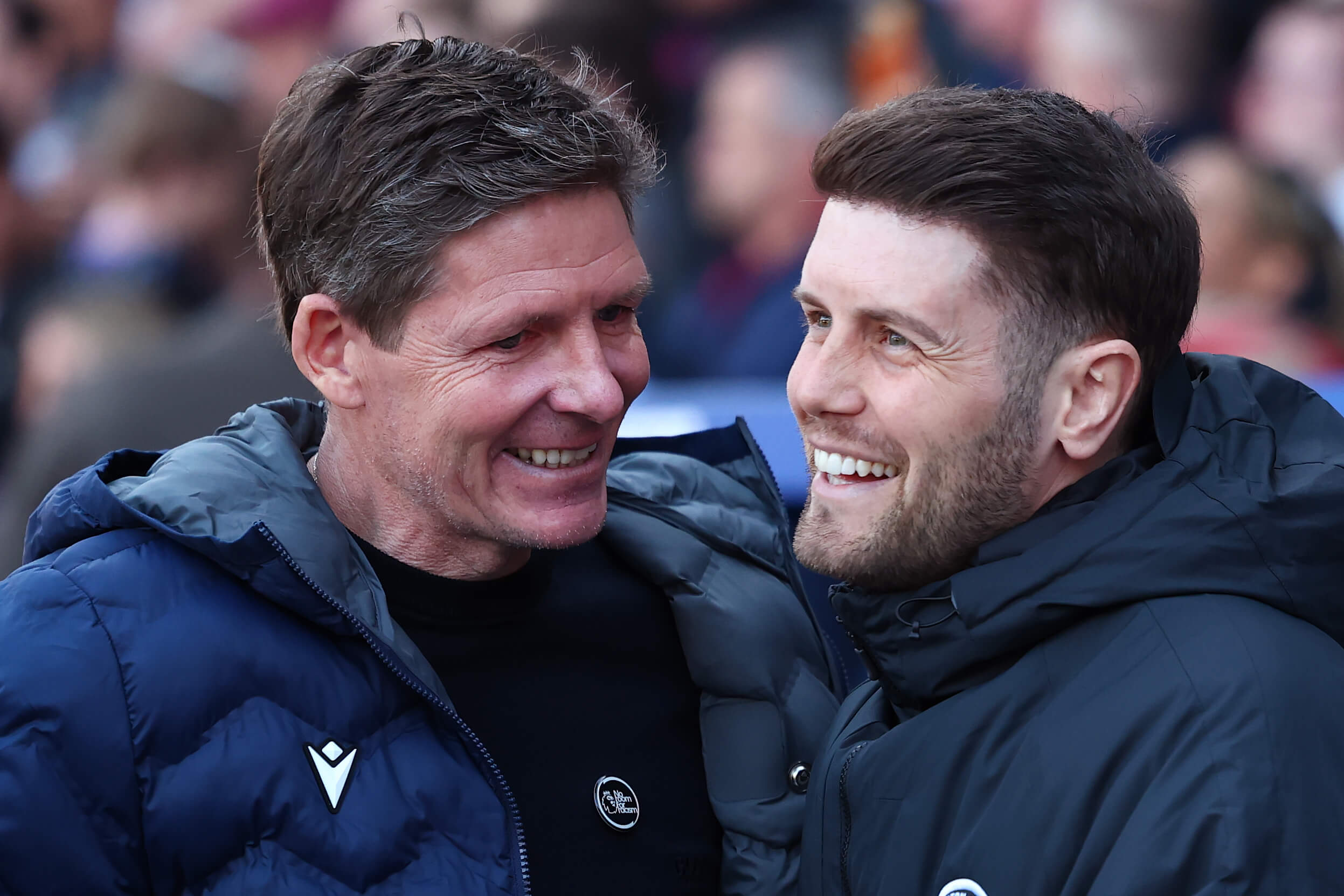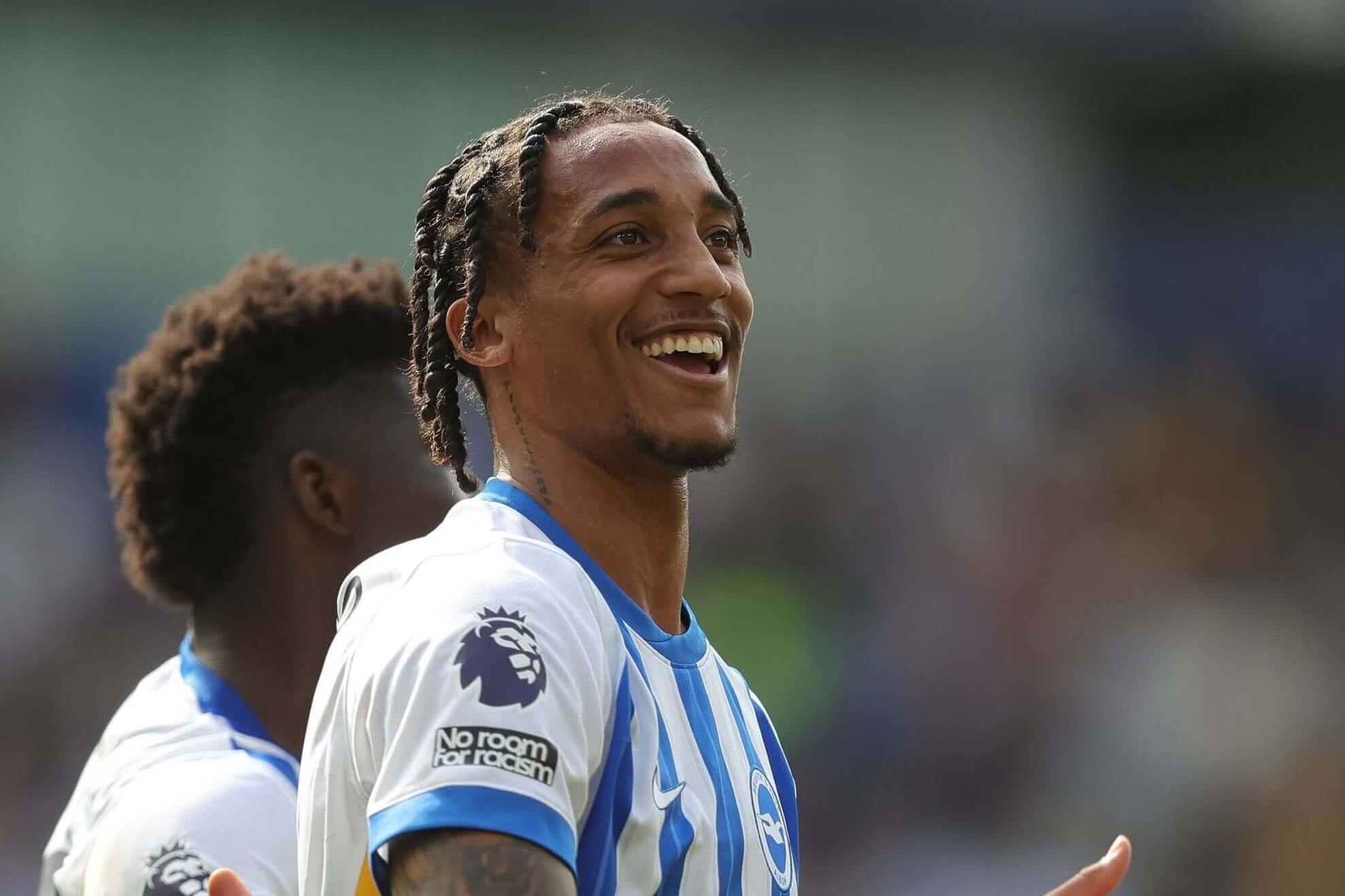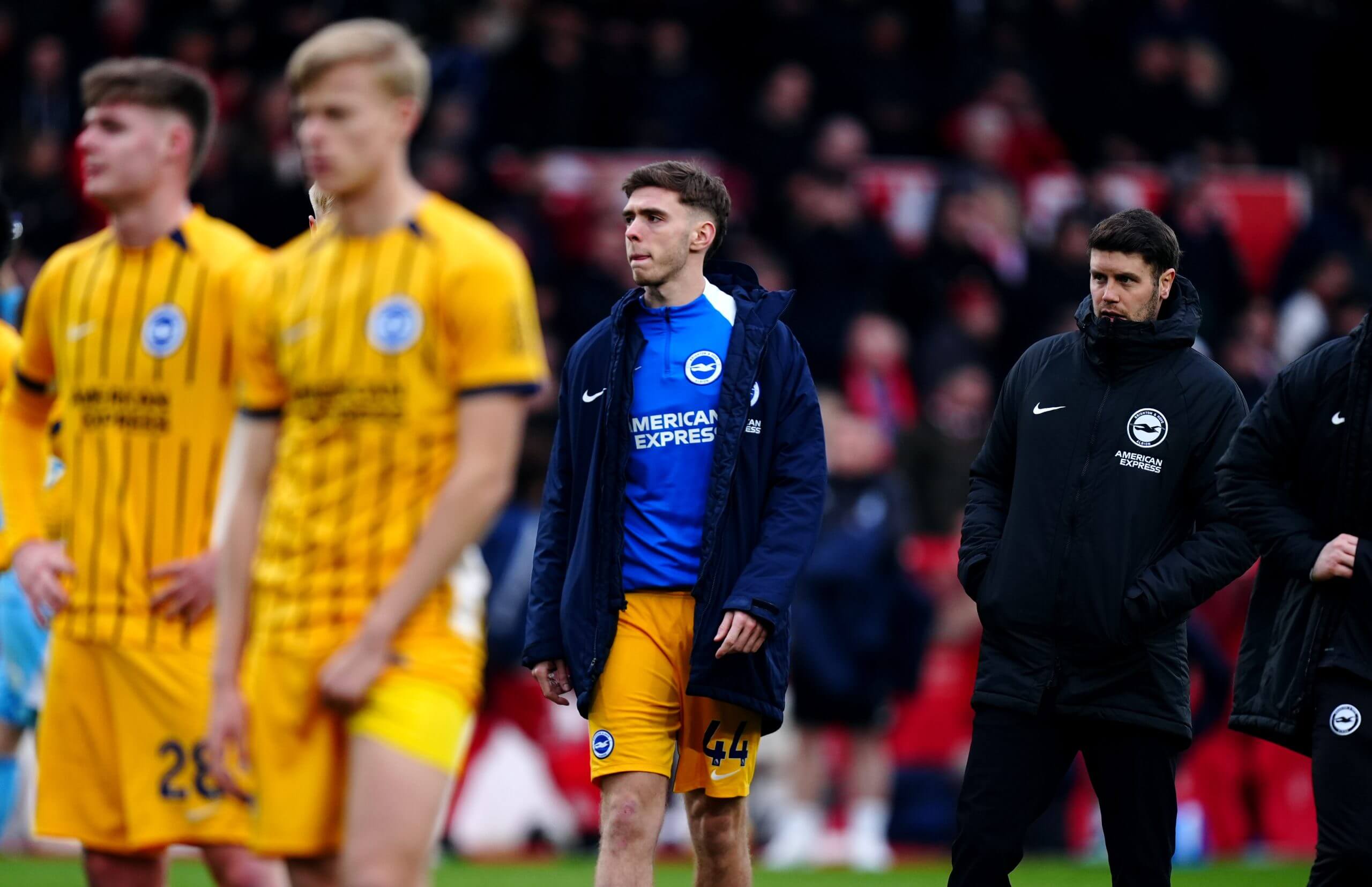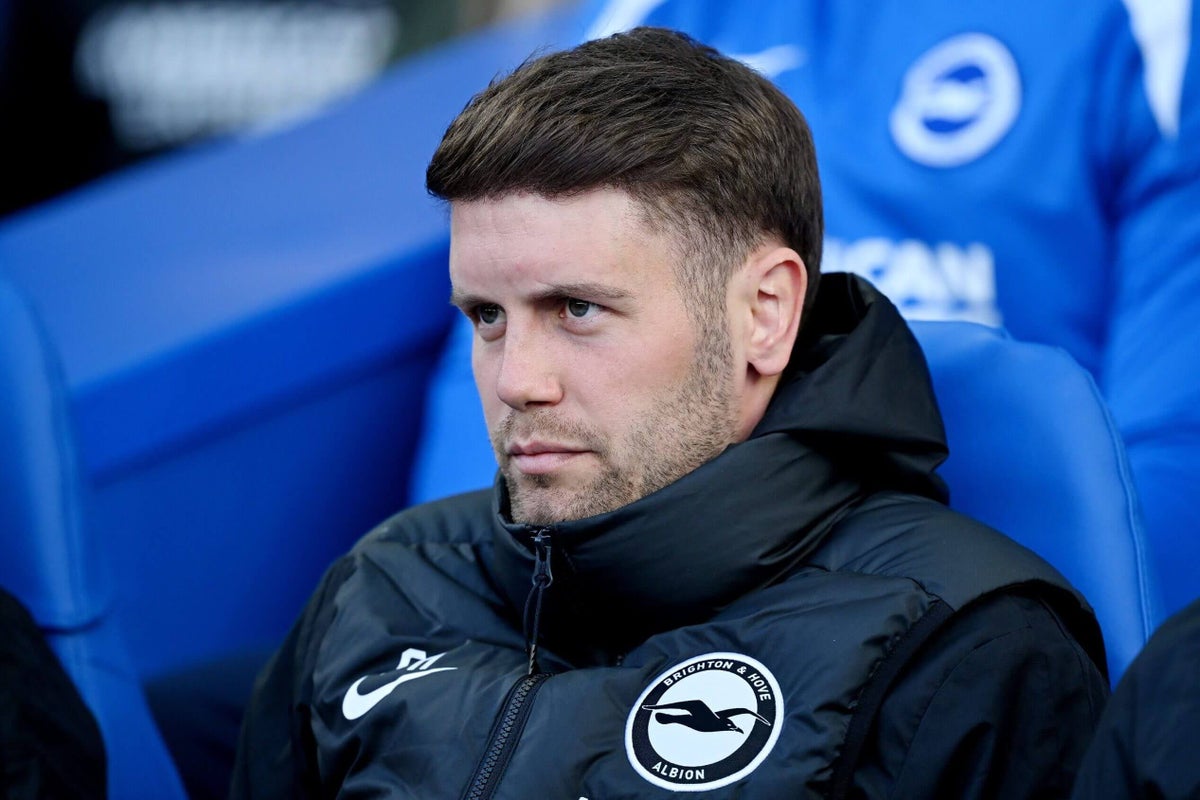Fabian Hurzeler was lauded after steering Brighton to eighth place in his first season in the Premier League, but he didn’t spend much of his summer sitting back and admiring his own work.
The German has lost Joao Pedro to Chelsea from his forward line, overseen the signings of five new players, and taken the difficult decision to axe one of his trusted confidants from his coaching staff. He also spent time in the United States on something of a coaching fact-finding mission.
Hurzeler sat down with The Athletic at the club’s pre-season training camp in Spain to discuss both his experiences in the season just gone, as well as looking ahead to the new campaign. The youngest manager in the Premier League, at 32 years old, reveals what it is like adapting to the top flight in England, how it feels to be under constant scrutiny, the rivals he admires, and why he would like to return to the U.S. to work in the future…
How did you find settling into life in the Premier League? How different is English football from German football in your experience?
Every game in the Premier League is a big event; you get a lot of attention, you feel this energy, this pressure, you feel the emotion from the crowd. You are very close to them, so it’s very emotional in the 90 minutes. Of course, I had experienced something a bit like this in Germany, but everything here is just bigger, more challenging and attracts more attention.
I remember feeling this even when I was in the tunnel for the first game of last season at Everton. Then I went out into the stadium and the first 20 minutes… (puffs out cheeks) I thought, ‘What is going on here?’. It was tough.
Then, when we were leading at Liverpool (in November), they had 10 minutes when they turned the game. It was very intense and very challenging to get a break into this game, to stop the flow they were in. But we also had really positive moments when we turned games around. That’s why we love the Premier League. There were positive and negative experiences.
Are there any other coaches in the Premier League you discuss these kinds of things with?
Unfortunately, he is coaching the wrong club (rivals Crystal Palace), but Oliver Glasner. He is very friendly, very open-minded, and very helpful. He has also achieved great things, not only with Palace but also when he was in Germany.

Glasner and Hurzeler (Shaun Brooks/Getty Images)
I know the rivalry, but for me it’s about the person, it’s not about the club. We try to share information, we try to help each other. When we play against each other, it’s about being successful and getting points and trying to be successful for the club.
I respect every coach and I try to learn from every coach in the Premier League. I am impressed by Thomas Frank, how he behaves, his interactions. I met him at the LMA dinner and he was very friendly, very open-minded. That is something that I really appreciate.
Time for some self-analysis. What did you do well, what can you do better?
What I did well? Others should judge me. What I will try to improve is to get fewer yellow cards (Hurzeler had four yellow cards and one red card in 2024-25), to improve my game management, and get more consistency with our performances and results.
You have changed your goalkeeping coaches, bringing in Jelle ten Roulewaar from Leicester in place of Marco Knoop and Jack Stern. How difficult was that, particularly with Marco, who came with you from St Pauli?
It was one of the hardest decisions I’ve had to make in my life. But I always try to emphasise that the most important thing is the club and the success of the club. That is always my priority. I am still in touch with Marco. He is one of my trusted ones. He was the first guy I called when I came here, so there was a lot of trust.
I cannot put personal wishes, personal needs, over the club’s ambition. That’s how I want to be, how I want to act, therefore I had to make a decision to change the goalkeeping department, because I think it was better for the club, better for the goalkeepers, better for the whole culture. The only thing I can say to Jack and Marco is that it was not personal, it was just to make sure that we have the right culture, the right demands, the right work ethic. What the clubs needs in that moment to be successful.
In common with your Brighton predecessors, Graham Potter and Roberto De Zerbi, you have experienced losing a big player during the summer transfer window, with Joao Pedro’s move to Chelsea. What was that like and what about opinions externally that continuing to sell the best players will eventually catch up with the club?
There is always talk when a club does something special, when a club is special. We are proud of our ways of working and we are not the only club who have sold one of our best players. It happens to bigger teams, bigger clubs. For me, the most important thing is that we always try to replace the players with great young players with big potential.

Brighton sold Joao Pedro to Chelsea this summer (Crystal Pix/Getty Images)
The second thing is the club also shows they can keep good players. There were big offers for Kaoru Mitoma (from Saudi Pro League club Al Nassr in January), interest in Jan Paul van Hecke in this window, but the club showed they can stay strong, keep their best players as well.
We know how we want to work here, we know the Brighton way, and we always try to get the best out of the players and try to be successful. I think we’ve shown it last season. Of course, we want to make improvements now. We still have high expectations of ourselves, we want to achieve more, and I think with the signings we’ve made, we haven’t got worse. That is what we have to prove now.
Do you get recognised in Brighton away from football? Is that a nice feeling or would you rather keep a low profile?
I try not to be out too often in Brighton. I get recognised, it’s part of the business. Is it a nice feeling? Not always. But I know how to deal with it. In Germany, in Hamburg, it was the same. You need to make sure that you behave like a person in the public eye. You might be a role model for others.
Sometimes it is a challenge because I am still a young person. Some moments you also want to enjoy your life, but I know I have to be a role model, set an example. That is how I try to behave when I am away from the club. Credit to everyone in Brighton, they are very respectful, very positive. No matter if we have a bad run, a bad loss, they keep pushing us, keep pushing me. I really appreciate it.
Any moments when you have received abuse?
After the Nottingham Forest game (a 7-0 defeat in February). The people pay a lot of money, spend a lot of time travelling to watch us. They have the right to do this, as long as it is respectful, I can handle it. I find a way to deal with it.

Hurzeler after Brighton’s 7-0 loss at Forest (Mike Egerton/Getty Images)
You have come a long way in a short space of time as a young coach. How ambitious are you to keep on developing?
Very ambitious. What is inside of me is that I always try to improve. I am never satisfied. It’s not always a great feeling if you are never satisfied, but that is just inside of me. I always try to think about what I can do with the players, to think about the staff, to think about everything working. It’s an ongoing thinking, the only way to reflect yourself, to improve yourself, to improve the team, to be there for your staff.
I am not looking too much into the future. I am only looking at my daily behaviour, because that’s the only thing I can influence. I try to be there for my staff, my team, try to improve them every day. With your daily behaviour, I think you show how ambitious you are, instead of talking about your ambition.
You moved from Houston, Texas, with your family when you were two and a half years old. You went back to the area this summer to see how teams in different sports operate. What did you get out of the trip and could you one day see yourself returning to where you were born to work?
Of course, I can see me there one day. I like the culture, I like the people, the way they work. I hope that football is growing there. I am quite convinced regarding the World Cup next year that it will grow this business for everybody.
What I have learned is more about culture, to have the right culture, work ethic. I learnt that focusing on the details is also a big part of American sports. How they train the players is very individualised. That is something we can improve, to really individualise the training programme for players.
It was quite interesting to see how much input the players get. So, in American football, the players have to learn a lot of patterns, they are sitting in the meeting with notebooks. That was something very impressive. I think, regarding this, we can improve the culture here, do these things better. We can learn from American sports.
(Top photo: Mike Hewitt/Getty Images)

